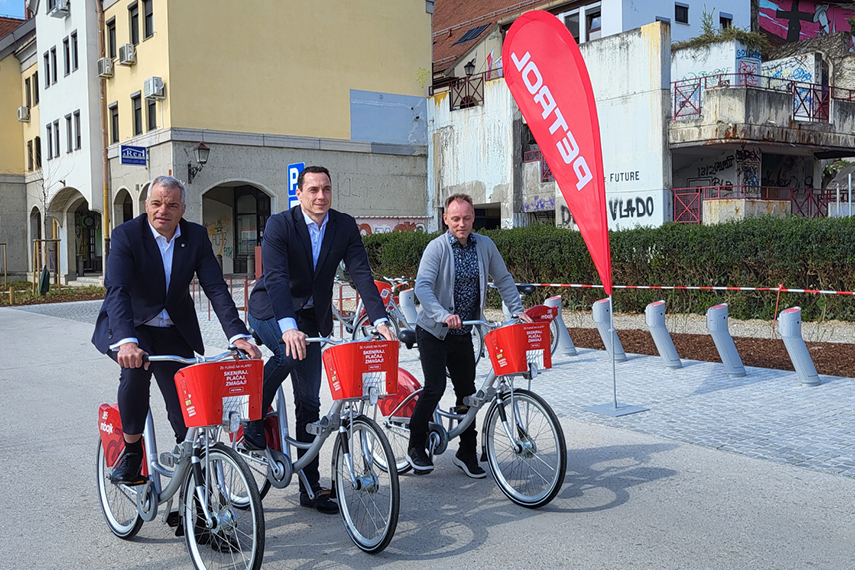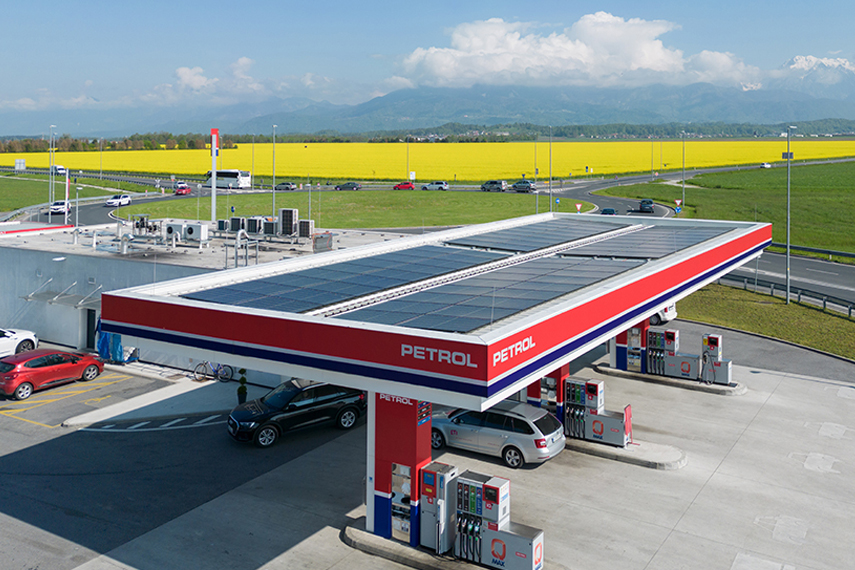Good practices
At Petrol, we recognize the power of co-creation and co-innovation. We dynamically collaborate with various stakeholders across numerous fields, creating new value in the process.

At the Petrol Group, we are aware of the significant challenges society faces regarding packaging and packaging waste. With innovative ideas and ambitious goals, we are taking important steps toward more sustainable service packaging. The drivers of these changes include legislation that restricts single-use plastics and raises the required targets for packaging waste management, increasingly sustainability-conscious consumers, and our own commitment to lead by example in changing consumer behavior.
Mobility of the Future
We have made significant progress in the field of sustainable mobility. Between 2022 and 2024, we increased the number of electric charging stations from 417 to 564 – a remarkable 35% growth. We are proud to be emerging as a leading partner in the region for the development of charging infrastructure.
In Ljubljana, we conducted the first test charging of LPP electric buses, while in Croatia and Slovenia, we are installing high-performance charging stations for heavy-duty vehicles as part of the European CROSS-E project. Through these initiatives, we are actively shaping a new vision of mobility – cleaner, quieter, and more city-friendly.
Communities, Partnerships, and People
Sustainability is not just about caring for nature but also for communities and people. In 2024, by signing the commitment for a climate-neutral Ljubljana by 2030, we demonstrated that we are a reliable partner to cities and municipalities. We supported the expansion of the bike-sharing system in Maribor and contributed to the development of the hydrogen ecosystem, paving the way for new opportunities in clean energy for Slovenia.

Our values – respect, trust, excellence, creativity, and passion – are also reflected in...
Expansion of the Petrol Green Project in Slovenia and the Region
We launched the EU Petrol Green project, further strengthening our commitment to sustainable development. As part of the project, we installed 128 solar power plants at service stations in Slovenia, with plans to add another 60 in 2025. The project is being expanded across the entire region.

Petrol Group Successfully Advances Digital Transformation of Logistics
In 2022, the Petrol Group launched the strategic project "Digitalization of the Oil & Gas Supply Chain" to digitalize, automate, and integrate logistics processes. This is one of the largest digitalization projects within the group, encompassing the supply of service stations as well as the sale and delivery of various energy products.
Developed over a two-year period, the project was carried out in collaboration with partners SmartCargo d.o.o. and Špica International d.o.o., resulting in a new logistics platform and an innovative mobile application. These digital solutions, which are already in use, will enhance operational efficiency and reduce emissions by up to 10% annually.

All our efforts can also be found at the following link: Press releases
